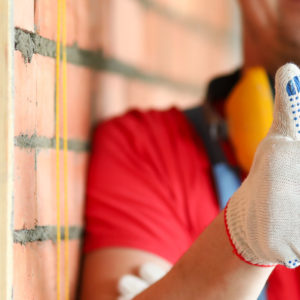How To Buy An Existing Small Business in Australia
There are plenty of reasons why people buy existing small businesses instead of starting a new one from scratch. The company could be a clothing store, a service station, a restaurant, or even a supermarket for sale. Buying a small business gives people a sense of security, knowing that you don’t have to do the groundwork as it’s already been done for you.
A key reason why some people consider buying an existing business aside from the existing infrastructure is the ongoing cash flow. However, buying a small business isn’t as easy as shaking hands with the owner. In Australia, there are steps and processes that you have to go through to get that business.
Therefore, as a buyer, you need to administer the proper assessment of the property and its value before making that final buyer’s decision. If you’ve been toying around with the idea of buying an existing small business, here are a few points to consider before doing so in Australia.
1. Are you ready to take on a business?
Running a small business takes a lot of time, effort and discipline. Before you take on the responsibilities of a business, consider the following things to ascertain your business readiness:
- Do you possess the right skill set to run a business?
- How much time can you invest in a business for it to be successful?
- Are you prepared both emotionally and physically to deal with the time pressure and unusual work hours that come with running a business?
- Does your business fit within your personal goals? If not, will buying the business help you achieve the goals?
- Do you have the necessary amount of capital to invest in a business and ensure its success?
2. Find the right business for you
Finding the best business that fits your needs takes time and can sometimes be challenging. Take your time when considering your interest and experience. Outlining what you like and your background experience can help you narrow down your search to a marketplace and industry that might be right for you.
After finding a business that you’re interested in, you may have to consider the following:
- Can the business potentially be successful in the long run?
- What value do you bring to the business?
- Where is it located?
- Does the business have a reliable established customer base?
3. Research more
Before you make that buying decision, ensure that you’ve conducted all your due diligence. Researching the existing small business you want to buy will help you understand its potential for future growth and reputation.
Doing in-depth market research can help you gauge the business’ customers and the type of market it functions in. You can also chat with the existing customers and ask them for their feedback. The business’ neighbours and employees can also give you insight into how the business is doing.
4. Understand why the business is selling
There are various reasons why someone might want to sell their business. It is always a good idea to determine why the owner is putting their business up for sale. You can do a thorough background check to find out why the company is being sold.
Many business owners put their businesses up for sale because of debts, losses or legal issues they find challenging to overcome. Ask the seller why they are selling, if they are on a time crunch to sell and if the owner is selling the trading part and the building or separate.
5. Write the pros and cons of buying the business
Before you buy the business, ensure that you go through a critical analysis of the existing small business. Evaluate its pros and cons, such as pricing, inventory, location and employees. The advantages and disadvantages should also feature the company’s image, suppliers, consumer base, financial arrangement, distributor and marketing strategies. If the cons outweigh the pros, it might be in your best interest to avoid buying the establishment.
6. Value the business
Before committing your hard-earned money to buy the business, ensure that you get a current value estimate of the company and its potential growth. Valuing the business gives you a rough estimate of the earnings and liabilities that can help you quote a price.
Research the market prices and see what other people are willing to pay for an existing small business like that one. If the company has any debts, you can ask if you can shave some of that in the final price. It’s always a good idea to include an independent business valuation professional who can help you arrive at an unbiased value that profits both the seller and you, the buyer.
7. Gather information before signing a contract
Before you sign the contract for the business, make sure you’ve gathered as much information as you can. Review all the business’s financial records, legal documents and business operations – much of this will come through the above mentioned valuation. Such documents help you manage any risks that come with buying a business. To conduct your due diligence on the business, you’ll need to review the following items:
- Contracts and leases- will the property owner agree to transfer the lease to your name, or will you have to negotiate a new lease?
- License and permits- does the business have correct and updated permits and licenses needed to run?
- Agreements- does the business have any outstanding agreements between the seller and the supplier?
- Inventory- is the current inventory included in the purchase? What is its state?
- Assets and liabilities- does the asset have any intellectual property? Does it have any outstanding debts?
- Financial Records- make sure to examine the past three to five years of financials:
- tax returns
- business activity statements (BAS)
- records of accounts receivable and payable
- balance sheets
- profit and loss records
- cash flow statements
- sales records
8. Make an offer
Once you’ve researched about the business and valued it, you’ll need to make a final decision on whether you’ll buy it or turn it down. You can negotiate the rate with the seller before agreeing. You then need to have a legal contract that stipulates what each person is getting into.
Contact us
There are a lot of moving parts that go into purchasing an existing small business. At Nationwide Super, we’re the small business super business for entrepreneurs and small business owners in Australia. Contact us today to see how we can serve you and your employees. Read our disclaimer.





